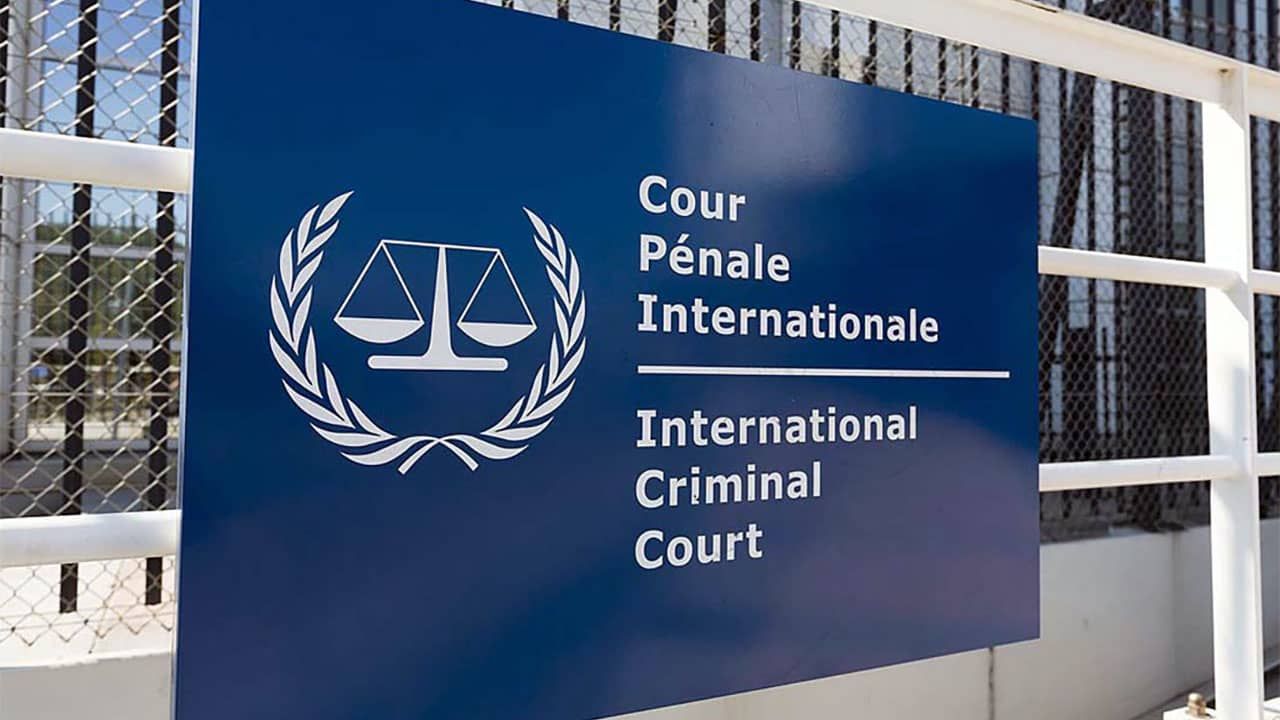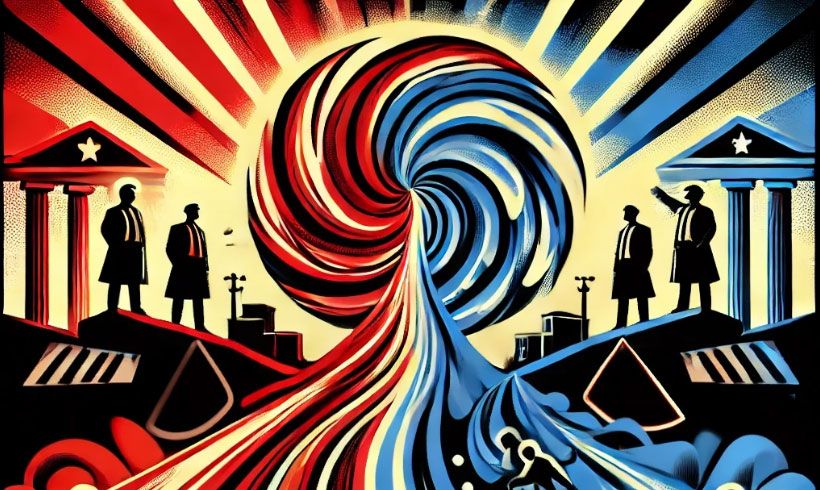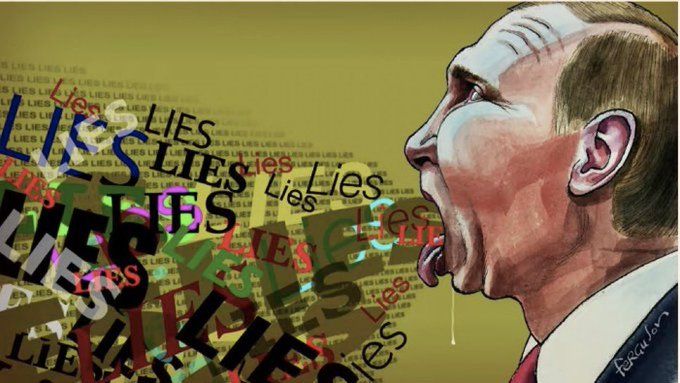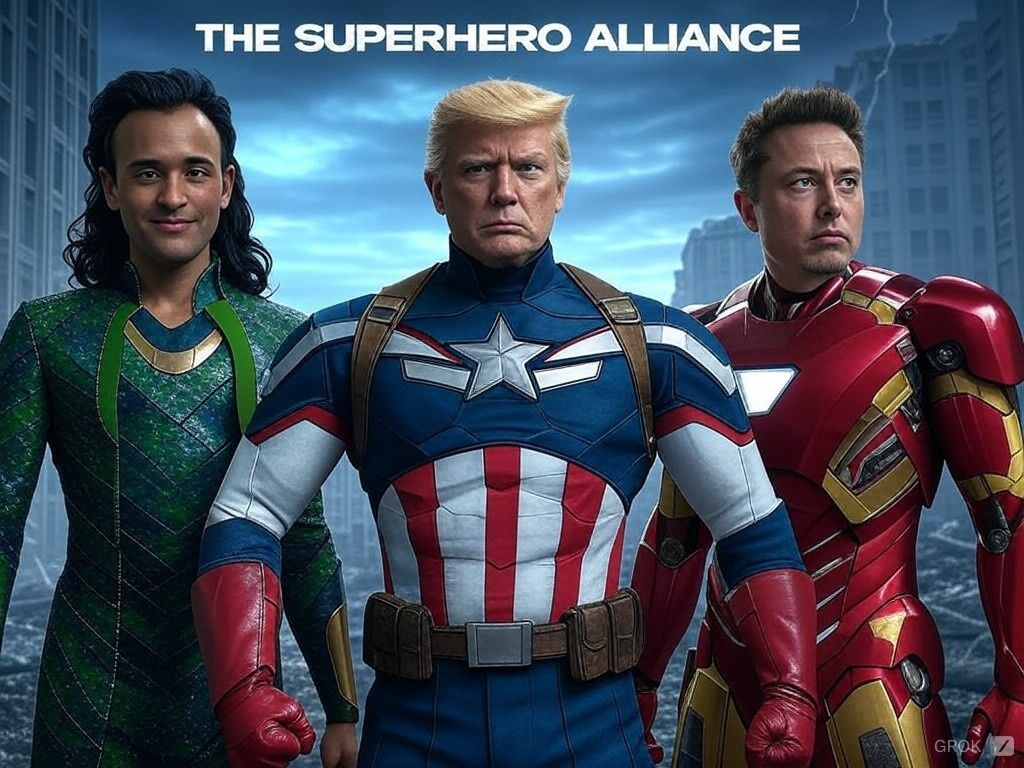Propagandists today may think they are safe, operating under the radar, or protected by political affiliations, but precedent is not on your side. International law is catching up, and those who use media to justify violence or stoke ethnic hatred are already being held accountable in courts around the world.
International Courts: Ensuring Accountability for War Crimes
International courts have a long history of holding individuals accountable for war crimes and incitement to violence. The UN and other international actors have consistently created or empowered judicial mechanisms to prosecute war criminals, including propagandists from the Nuremberg Trials to modern hybrid tribunals. The idea that media figures can be untouchable is a misconception. Legal precedent shows otherwise. The flexibility of establishing ad-hoc, hybrid, or national courts ensures that war criminals are held accountable, regardless of the complexities involved in each conflict.
This shows the enduring commitment of the international community to seek justice for atrocities, no matter how difficult or politically charged the situation.
1. Nuremberg Trials (1945-1946)
The Nuremberg Trials, pivotal in prosecuting Nazi leaders after World War II, were not only about holding individuals accountable for war crimes and genocide but also included the prosecution of propagandists—a point that was strongly advocated by the Soviet Union. The USSR, which had suffered enormous losses during the war, recognized the role of propaganda in fueling the atrocities committed by the Nazis. The Soviets insisted that media figures and propagandists who had contributed to the incitement of violence and genocide be held accountable. The Rusians believed that punishing those who used media to mobilize violence was as crucial as prosecuting those who directly committed physical atrocities
2. International Criminal Court (ICC)
The ICC, established by the Rome Statute in 1998, is a permanent international court designed to prosecute individuals for genocide, war crimes, and crimes against humanity. It has handled cases in conflicts like Darfur and has issued warrants for high-profile individuals, such as Vladimir Putin during the Ukraine conflict.
3. International Criminal Tribunal for the Former Yugoslavia (ICTY)
The ICTY was set up by the UN in 1993 to prosecute war crimes during the Yugoslav Wars. It brought justice to key figures like Slobodan Milošević and others responsible for ethnic cleansing.
4. International Criminal Tribunal for Rwanda (ICTR)
Established in 1994 after the Rwandan Genocide, the ICTR prosecuted leaders responsible for the genocide, including media figures who incited violence. This tribunal set precedents for prosecuting incitement to genocide through propaganda.
5. Special Court for Sierra Leone (SCSL)
The SCSL, a hybrid court established in 2002, was designed to prosecute war crimes committed during the Sierra Leone Civil War. It famously convicted Charles Taylor, the former Liberian president, for his role in aiding and abetting war crimes.
6. Extraordinary Chambers in the Courts of Cambodia (ECCC)
This hybrid court, established to try senior leaders of the Khmer Rouge, has convicted key figures responsible for the mass atrocities committed in Cambodia between 1975 and 1979.
7. Special Tribunal for Lebanon (STL)
The STL was created to prosecute those responsible for the assassination of Lebanese Prime Minister Rafic Hariri in 2005. Although not focused on war crimes, it demonstrates the UN's flexibility in establishing special judicial bodies for specific cases.
8. Hybrid and National Courts
In addition to UN-organized courts, national courts with international support have prosecuted war crimes:
- Kosovo Specialist Chambers: Set up to prosecute crimes committed during and after the Kosovo War.
- East Timor Special Panels for Serious Crimes: These panels prosecuted atrocities committed during East Timor’s independence struggle.
The Legal Framework for Prosecuting Propagandists
The International Criminal Court (ICC) and other international courts have established mechanisms to hold propagandists accountable, particularly when their speech incites or justifies violence. While propaganda itself is not always illegal, when it crosses the line into incitement of war crimes, genocide, or crimes against humanity, it becomes a serious offense under international law.
- Rome Statute of the ICC: The Rome Statute, which governs the ICC, provides the legal basis for prosecuting individuals who commit or incite war crimes, genocide, or crimes against humanity. Specifically, Article 25 criminalizes direct and public incitement to genocide, which is a key element when prosecuting propagandists. The ICC has also issued arrest warrants for incitement to war crimes, and its role in prosecuting speech-related crimes is expanding, especially with digital platforms amplifying these messages.
- Other International Laws: Additional frameworks, like Article 20 of the International Covenant on Civil and Political Rights (ICCPR), prohibit propaganda for war and hate speech that incites violence. The Convention on the Elimination of All Forms of Racial Discrimination (CERD) also criminalizes propaganda that promotes racial hatred, showing that global legal instruments already exist to target harmful propaganda. If your messages contribute to mass atrocities, international law is clear: you can be prosecuted.
Notable Precedents: Propaganda as a Crime
International law has seen several key cases where individuals were held accountable for using propaganda to incite violence or atrocities. These cases provide a blueprint for how modern-day propagandists may be prosecuted:
Nuremberg Trials (1945–1946): Conviction of Julius Streicher
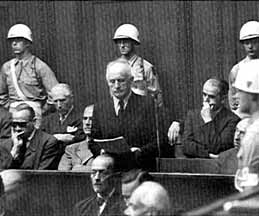 After World War II, Julius Streicher, the publisher of the virulently anti-Semitic newspaper Der Stürmer, was tried at the Nuremberg Trials. Streicher’s propaganda was not merely hate speech but an essential tool in the Nazi regime’s dehumanization and persecution of Jews, which culminated in the Holocaust. Streicher was convicted of crimes against humanity for his role in inciting hatred and violence through his newspaper, even though he never physically committed any violent acts himself.
After World War II, Julius Streicher, the publisher of the virulently anti-Semitic newspaper Der Stürmer, was tried at the Nuremberg Trials. Streicher’s propaganda was not merely hate speech but an essential tool in the Nazi regime’s dehumanization and persecution of Jews, which culminated in the Holocaust. Streicher was convicted of crimes against humanity for his role in inciting hatred and violence through his newspaper, even though he never physically committed any violent acts himself.
- Punishment: Streicher was sentenced to death by hanging. His case remains one of the most well-known examples of a media figure being held accountable for incitement to genocide.
Rwanda (1994): International Criminal Tribunal for Rwanda (ICTR)
One of the most significant cases involving propaganda was during the Rwandan Genocide, where Radio Télévision Libre des Mille Collines (RTLM) played a pivotal role in inciting ethnic violence. The radio station broadcasted hate speech, calling for the extermination of Tutsis and spreading dangerous misinformation that contributed directly to the mass killings. The ICTR sent a clear message: broadcasting hate and inciting violence will not be excused by claiming freedom of expression.
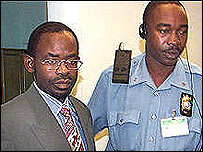 Jean-Bosco Barayagwiza, a co-founder of RTLM, was convicted of genocide, crimes against humanity, and war crimes by the ICTR. He was sentenced to 35 years in prison, though his sentence was later reduced on appeal. His involvement spanned both broadcasted incitement through radio and direct organizational support for the atrocities committed during the genocide..
Jean-Bosco Barayagwiza, a co-founder of RTLM, was convicted of genocide, crimes against humanity, and war crimes by the ICTR. He was sentenced to 35 years in prison, though his sentence was later reduced on appeal. His involvement spanned both broadcasted incitement through radio and direct organizational support for the atrocities committed during the genocide.. Ferdinand Nahimana, another co-founder and RTLM director, was convicted by the ICTR for using the radio station to broadcast hate speech that incited violence, contributing to the genocide. He was found guilty of direct and public incitement to commit genocide, as well as crimes against humanity, and initially received a life sentence, which was later reduced to 30 years on appeal.
Ferdinand Nahimana, another co-founder and RTLM director, was convicted by the ICTR for using the radio station to broadcast hate speech that incited violence, contributing to the genocide. He was found guilty of direct and public incitement to commit genocide, as well as crimes against humanity, and initially received a life sentence, which was later reduced to 30 years on appeal.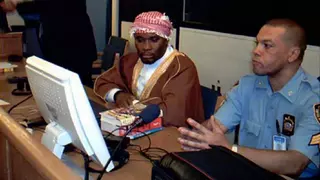 Hassan Ngeze, the editor of the extremist magazine Kangura, was convicted by the ICTR for publishing articles that incited genocide, including the infamous 'Hutu Ten Commandments,' which fueled ethnic hatred against Tutsis. His role in spreading propaganda that encouraged mass violence led to his conviction for genocide, crimes against humanity, and incitement to genocide. He was sentenced to 35 years in prison for using the media to promote hatred and orchestrate violence during the Rwandan Genocide.
Hassan Ngeze, the editor of the extremist magazine Kangura, was convicted by the ICTR for publishing articles that incited genocide, including the infamous 'Hutu Ten Commandments,' which fueled ethnic hatred against Tutsis. His role in spreading propaganda that encouraged mass violence led to his conviction for genocide, crimes against humanity, and incitement to genocide. He was sentenced to 35 years in prison for using the media to promote hatred and orchestrate violence during the Rwandan Genocide.
These convictions highlight the ability of international courts to hold media figures accountable for propaganda that directly leads to violence and genocide, regardless of whether they physically participated in the atrocities.
Bosnian Conflict (1992–1995): ICTY
During the war in the former Yugoslavia, propaganda was used to inflame ethnic tensions, and individuals who contributed to ethnic cleansing through media were prosecuted by the International Criminal Tribunal for the former Yugoslavia (ICTY). While these cases didn’t focus solely on media figures, the court acknowledged the role of propaganda in justifying atrocities.
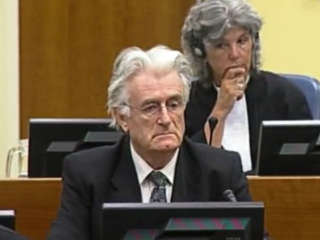 Radovan Karadžić, the Bosnian Serb leader, was convicted by the ICTY for genocide, war crimes, and crimes against humanity. His speeches and media presence played a significant role in promoting ethnic violence. He was sentenced to life imprisonment.
Radovan Karadžić, the Bosnian Serb leader, was convicted by the ICTY for genocide, war crimes, and crimes against humanity. His speeches and media presence played a significant role in promoting ethnic violence. He was sentenced to life imprisonment.
Conclusion on Precedents
These cases demonstrate that international courts, particularly the ICTR, ICTY, and the ICC, have been willing to prosecute media figures and political propagandists whose rhetoric contributed to war crimes or genocide. The punishments vary from decades in prison to death sentences, depending on the severity of the crimes and the level of involvement in inciting violence.
Challenges in Prosecuting Propagandists
While the ICC and international bodies have made strides in prosecuting propaganda-related crimes, challenges remain:
- Proving Causality: Establishing a direct link between speech and violent actions is crucial. Courts must prove that propaganda substantially contributed to the commission of war crimes, which can be difficult if the speech is ambiguous or indirect.
- Charles Blé Goudé (2015): ICC Case
Charles Blé Goudé, a close ally of Ivory Coast’s President Laurent Gbagbo, was accused of using his position as a political leader and propagandist to incite violence during the country’s post-election crisis in 2010-2011. Blé Goudé delivered speeches that allegedly encouraged attacks on Gbagbo’s opponents, leading to widespread violence and the deaths of thousands of civilians. The International Criminal Court (ICC) charged him with crimes against humanity, including murder, rape, and persecution.
Outcome: In 2019, Blé Goudé was acquitted by the ICC due to insufficient evidence directly linking his speeches to the violence. However, the case remains significant because it showcased how the ICC examines propaganda’s role in inciting crimes against humanity.
- Charles Blé Goudé (2015): ICC Case
- Political Barriers: Countries like Russia, China, and the U.S. are not signatories to the Rome Statute, complicating efforts to prosecute their citizens. However, in cases where U.S.-based media outlets or individuals engage in propaganda for international conflicts that violate international laws (e.g., promoting genocide or inciting war crimes), the U.S. government may be willing to extradite individuals to face justice in foreign courts, especially when propaganda acts are committed outside U.S. territory, where the First Amendment’s free speech protections do not apply.
Why You Should Be Worried: Modern Technology Amplifies Accountability. Not Reduces It!
Propagandists today may believe that their actions are protected, especially in regions where legal protections for speech are stronger, like the United States. However, if your propaganda contributes to international crimes, you are not immune. When propaganda acts are committed outside U.S. territory, the First Amendment’s free speech protections do not apply. Countries are increasingly willing to cooperate with international legal bodies, and extradition is a real possibility. The U.S. Secretary of State has discretion over whether to extradite individuals based on the specifics of each case, and political factors often play a role in this decision-making process. This system ensures that crimes that fall under international jurisdiction and violate U.S. law may lead to extradition.
Therefore, even if you operate from a country that is not a member of the ICC, like Russia or the U.S., your actions can still fall under universal jurisdiction. Moreover, the digital footprint left by online activities makes it easier than ever to gather evidence against you. And be warned, if you attempt to travel internationally, your movements will be severely restricted. Any country that is a signatory to the ICC will have the legal obligation to arrest you upon entry, meaning you risk being detained the moment you land at an international airport
No Shield of Protection: Superior Orders Defense Leaves Propagandists Exposed
If you believe propagandists can hide behind the excuse of just following orders, you’re mistaken. For propagandists, the Superior Orders Defense offers even less protection than it does for soldiers on the battlefield. Under international law, military personnel can sometimes claim they were compelled to follow direct orders during combat. But when it comes to propaganda, the law sees their actions as voluntary. They’re choosing to spread disinformation, incite violence, and fuel atrocities.
The Rome Statute is clear: the Superior Orders Defense is only available in very narrow circumstances, and it doesn’t apply if the individual was aware that their actions were illegal, something that is nearly impossible to deny when it comes to spreading hate and inciting war crimes. Courts like those at Nuremberg and the International Criminal Tribunal for Rwanda (ICTR) have repeatedly found that propagandists cannot claim ignorance or coercion. Unlike soldiers who might be acting under extreme pressure, a propagandist’s role is deliberate and active, making them fully accountable for the violence their words encourage.
This makes propagandists even more vulnerable to prosecution than those who might physically carry out war crimes. History shows that they won’t be able to hide behind orders. If they choose to fuel atrocities with their words, the international community is prepared to hold them responsible.
Conclusion: Should Propagandists Be Worried?
Absolutely. If you are involved in using media to promote violence, incite war crimes, or contribute to ethnic cleansing, your actions are certainly not going unnoticed. The international community is increasingly committed to holding propagandists accountable, as they are just as responsible for atrocities as those who commit them physically. Precedent is already established, and legal frameworks are there already, rapidly expanding to ensure that those who incite violence through words will face prosecution. Tomorrow, the courts may be looking for you.


